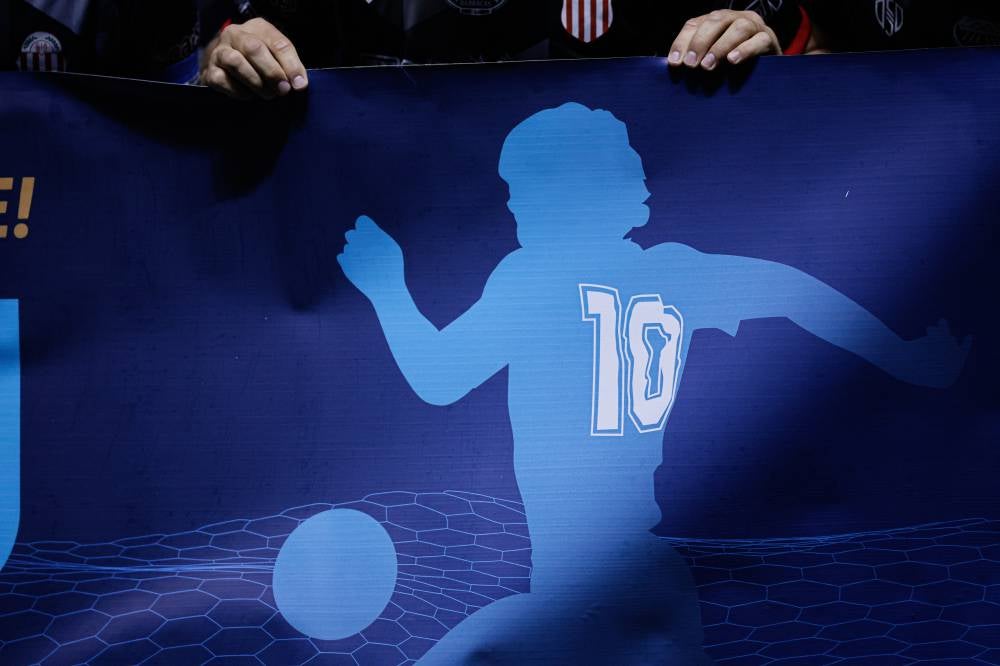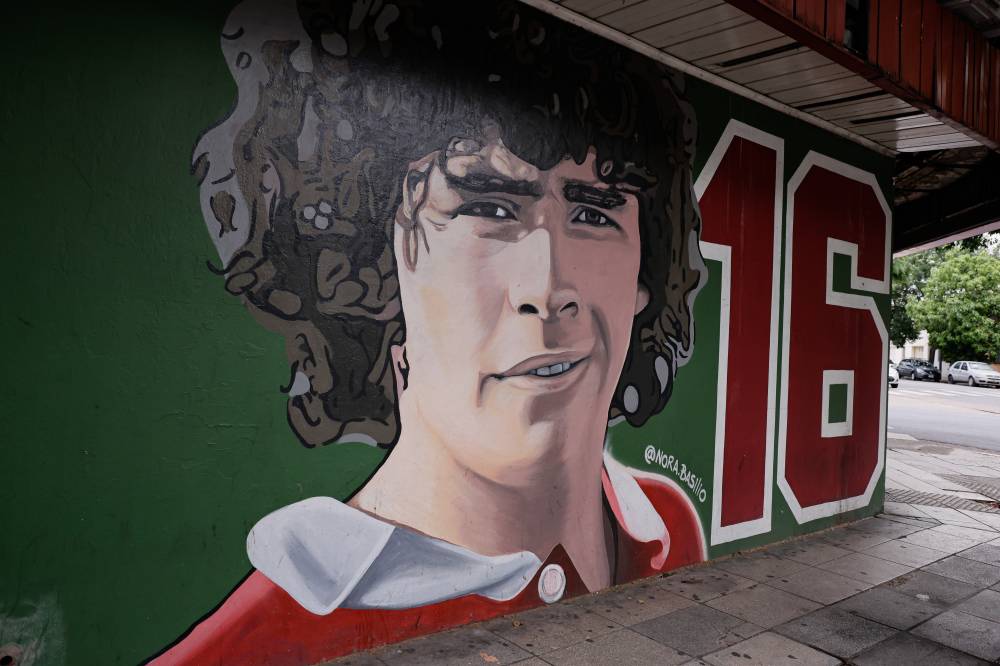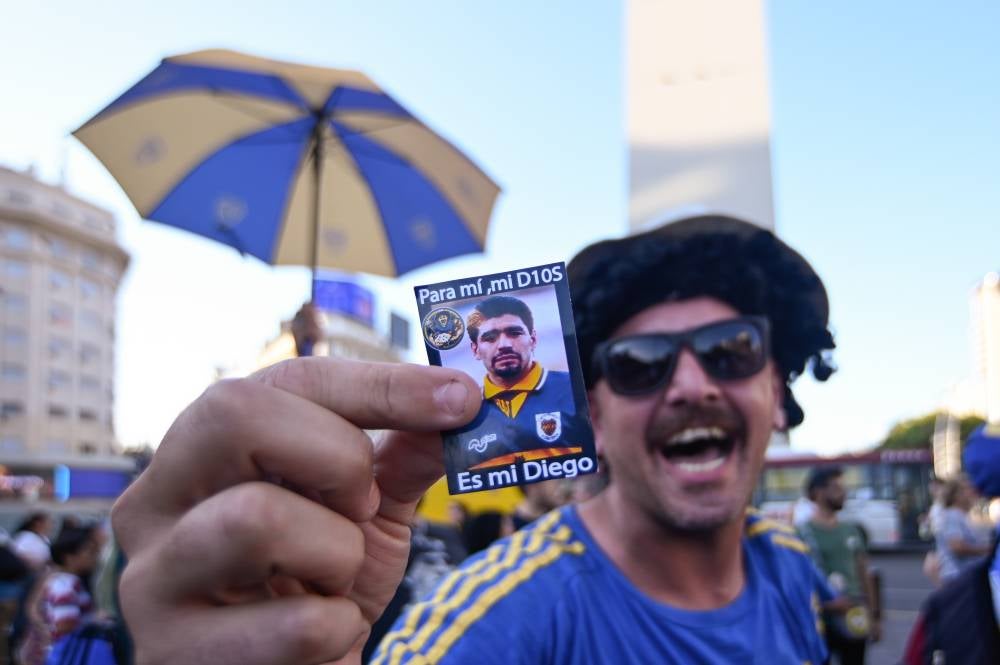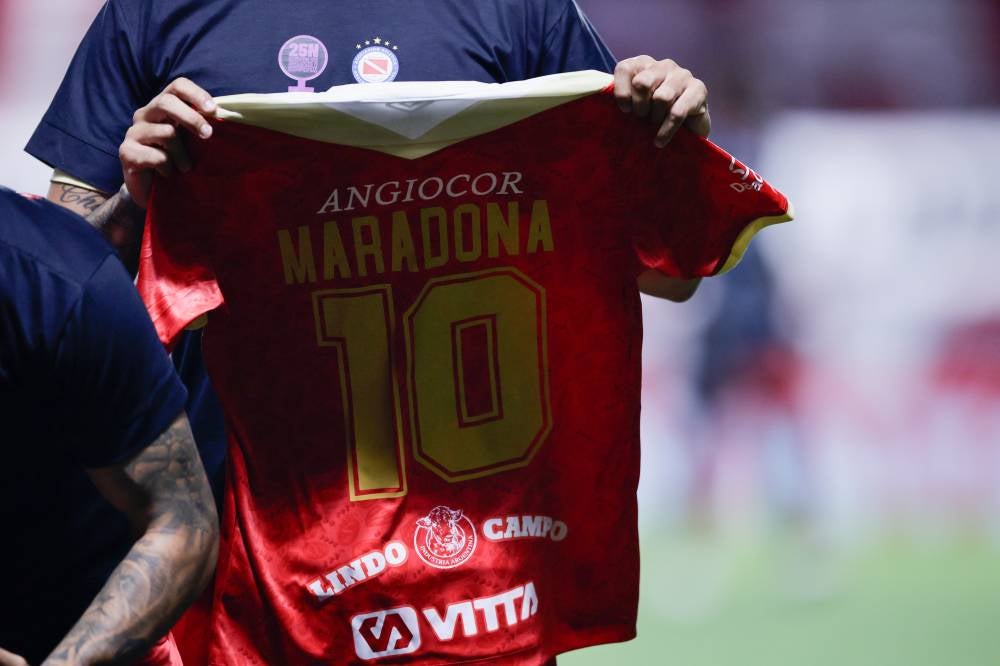Diego Maradona: Remembering 'the king of football'
Maradona was celebrated for his speed, remarkable technique, and captivating dribbling skills. His versatility allowed him to thrive as both an attacking midfielder and forward.

ISTANBUL - November 25, 2020 marks the passing of one of football’s all-time greats, Diego Maradona, at the age of 60. Four years on, many of his iconic goals that established him as the Argentine football legend are still etched in memory.
Born on Oct 30, 1960, in Buenos Aires, Maradona was celebrated for his speed, remarkable technique, and captivating dribbling skills. His versatility allowed him to thrive as both an attacking midfielder and forward.
Throughout his stellar club career, Maradona dazzled fans with Argentinos Juniors, Boca Juniors, Newell's Old Boys, Barcelona, Sevilla, and most notably, Napoli, where he became a legend.
On the international stage, Maradona was instrumental in Argentina's 1986 FIFA World Cup triumph in Mexico. His performance in that tournament, highlighted by the infamous "Hand of God" goal and his legendary solo effort against England, solidified his legendary status.
'Hand of God'
Maradona immortalised himself in football history during the 1986 FIFA World Cup quarterfinal against England with two unforgettable goals.
In the 51st minute, he scored the controversial "Hand of God" goal by flicking the ball with his hand over England goalkeeper Peter Shilton and into the net.
The referee, missing the handball, allowed the goal to stand. Maradona later described it as "a little with the head of Maradona and a little with the hand of God."
Just four minutes later, he scored what is widely regarded as the "Goal of the Century." Starting from his own half, he dribbled past five English defenders before slotting the ball past goalkeeper Peter Shilton.

This extraordinary solo effort cemented his legacy as one of the greatest football players of all time. Argentina won the match 2-1, advancing to the semifinals and eventually lifting the World Cup trophy.
In the final, held at Mexico City's Estadio Azteca, Maradona led Argentina to a thrilling 3-2 victory over West Germany to secure the title.
Career in Europe
Maradona left a lasting impression at Barcelona from 1982 to 1984, scoring 38 goals in 58 matches across all competitions.
In 1983, he celebrated winning three trophies with the Spanish giants: the King's Cup (Copa del Rey), the Spanish Super Cup, and La Liga.
A move to Napoli in 1984 marked the beginning of his legendary status in Italian football.

During his time with Napoli, Maradona played 259 matches, scoring 115 goals in all competitions. He elevated the club to unprecedented heights, securing their first Serie A title.
Thanks to his contributions, Napoli won two league titles, the UEFA Cup, the Italian Cup, and the Italian Super Cup — trophies now displayed in the club's museum.
After Napoli, Maradona played for Sevilla, Newell's Old Boys, and Boca Juniors before retiring in 1997.
Over his career, he scored 312 goals in 588 matches across all competitions.
Coaching career
Maradona's managerial career paled in comparison to his achievements as a player.
In 1994, he began coaching alongside former teammate Carlos Fren at Textil Mandiyu and later Racing Club in 1995.
In 2008, he took over as head coach of Argentina, replacing Alfio Basile.

Despite high expectations, his tenure was inconsistent. While he guided Argentina to the 2010 FIFA World Cup, a 4-0 loss to Germany in the quarterfinals led to his dismissal.
Following Argentina's victory over Uruguay in the 2010 World Cup qualifiers, he was penalised by FIFA for two months for insulting the media.
Shadow of scandals
Maradona's glittering career was often overshadowed by controversies off the field.
Despite his crucial role in Argentina's 1990 World Cup run, he faced numerous scandals.
In 1991, he was sentenced to 15 months for drug use and in 1994, he was expelled from the World Cup after testing positive for banned substances.
Reports also claimed Maradona had over €37 million ($38 million) in tax debt from his time at Napoli in 1984-1991.
Recognised as one of football's greatest players, Maradona passed away from a heart attack on Nov. 25, 2020, at his home near Buenos Aires. - ANADOLU














